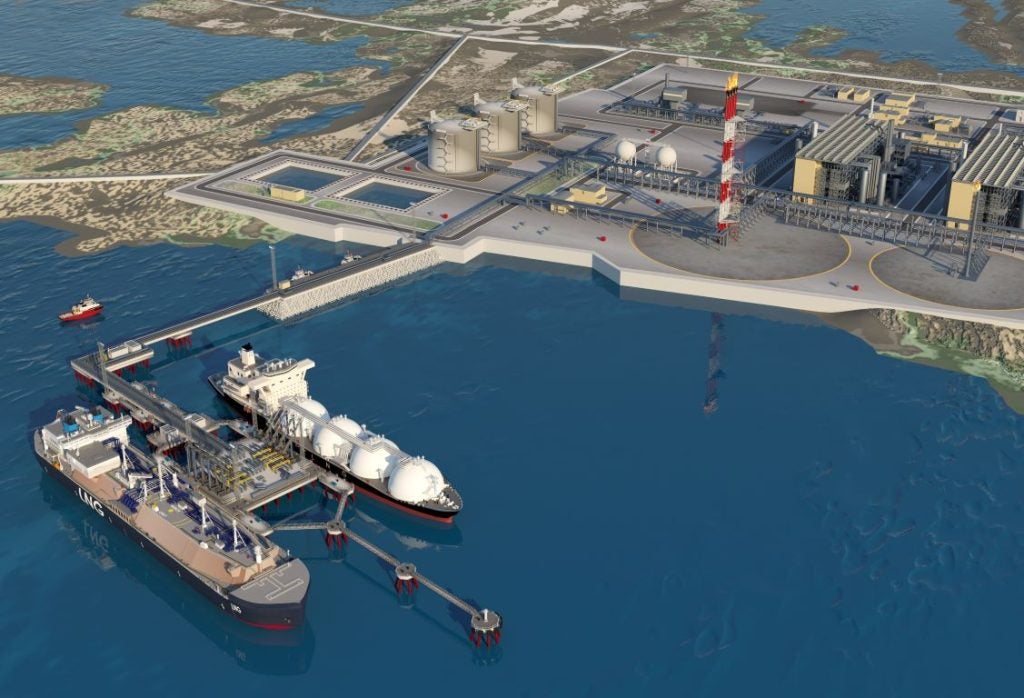
In an attempt to redevelop its domestic oil and gas industry following years of war and sanctions, Iraq opened two licensing rounds in 2008, one in January and one in December. The move was intended to speed up the growth of the country’s upstream industry, but in the first round Iraq failed to award most of the contracts and only BP and CNPC secured the prized Rumaila oil field.
Ten major projects were announced for the second round, which are due to be awarded in December 2009. The terms, however, appear broadly similar to the first licensing round, which due to an oil law and lack of security, proved to be unfavourable to international oil companies. Nevertheless, with 115 billion barrels of proven reserves and huge future potential, this round could prove more successful than the first.
Iraq is ranked fourth in the world in terms of total oil reserves. Yet for a country of such natural wealth, it has not been able to develop the production infrastructure to support these resources.
An exclusive report from market analyst GlobalData showed an increase in crude oil production is vital for the overall development of Iraq.
About 85% of the nation’s government revenues come from oil sales and with limited funds and various rebuilding projects currently underway, the country is facing a crunch situation.
See Also:
Oil production in Iraq stands at 2.4 million barrels per day. Production rates fell drastically as a result of the US invasion and although they have been increasing since 2005, they remain below pre-war levels. The government, however, is hopeful the country can double this figure in the coming years and has set a target of boosting oil output to about 10 million barrels per day by 2015, a target it believes is achievable if investors help develop its assets.
How well do you really know your competitors?
Access the most comprehensive Company Profiles on the market, powered by GlobalData. Save hours of research. Gain competitive edge.

Thank you!
Your download email will arrive shortly
Not ready to buy yet? Download a free sample
We are confident about the unique quality of our Company Profiles. However, we want you to make the most beneficial decision for your business, so we offer a free sample that you can download by submitting the below form
By GlobalDataRound one: teething problems
International interest in Iraq was heightened on 7 January 2008 when the Iraq Oil Ministry announced the first Iraqi petroleum licensing round, more than 30 years after Saddam Hussein nationalised the country’s oil industry. By 30 June 2008, 35 contracts had been pre-approved for the contracts. Of the 35 pre-qualified companies, 22 made 15 bids for $16bn-worth of technical service contracts.
The terms of the contracts stated that foreign firms must partner Iraqi Government-owned firms, principally the South Oil Company (SOC), and allow them to own a 25% stake and share management of the fields while still fully financing any developments.
Rather than a share of the profits, companies were offered a fixed fee per barrel and were only to be paid once a production threshold set by the government was reached.
Pre-qualified firms were required to submit three bidding parameters: a proposed production plateau to be achieved within the first three years, output targets for the first three years of production and a remuneration fee per barrel of additional production over the baseline. Bids were judged mainly on the fees each firm asked for its work, which were expressed in per barrel terms for the oil produced. The maximum contract offer was 25 years.
The maximum remuneration fee that Iraq offered to pay to develop an oil field was $4 per barrel of additional output for Bai Hassan, while the lowest remuneration fee was $1.90 a barrel for West Qurna.
As a result, the country failed to reach an agreement with companies for six of its sites, including the Kirkuk and West Qurna oilfields, and received no bids for the Mansuriya natural gas field. The only bid awarded was for the largest of the eight fields, Rumaila, which went to a consortium of BP and China National Petroleum Corporation.
The BP-led group defeated Exxon and Malaysia’s Petronas Carigali, the only other bidder for the field, after agreeing develop the field at a cost of $2 a barrel (after recovering investment) lower than the prices that BP and Exxon initially bid. The technical service contract runs for 20 years and can be extended for another five years. In addition, a signature bonus of $500m is payable by the winning consortium. This will be repaid over five years, with interest, starting in 2011.
The maximum remuneration fee (MRF) set by the Iraq Government was low in comparison to the remuneration quoted by the companies / consortiums and consequently the first licensing round was a disappointment for Iraq and the international oil companies.
Round two: a better offer?
Following the second licensing round in December 2008, 45 companies became pre-qualified to bid on oil projects, including BP, Exxon Mobil Corp, Anadarko, BHP Billiton and Chevron. The companies that made up the bidding list were expected to hold at least 10% of any consortium and can participate in as many as four bids. Iraq expects to receive $1.2bn in signature bonuses from this second round.
The ten projects offered in the second licensing round have an estimated combined reserve of more than 50 billion barrels. The largest fields offered are the West Qurna-Phase Two and Majnoon fields, which may hold up to 12.9 billion barrels and 12.6 billion barrels respectively.
The signature bonuses for the East Baghdad, Halfaya, Majnoon and West Qurna super giant fields offered in the second round will be $150m. The country will seek signature bonuses of $100m for each of the other six oil and gas fields it plans to offer. These are lower than the signature bonus of $500m for Rumaila.
Even with lower remunerations, the super giant fields offered in the second round should attract foreign players. International oil companies are constantly faced with the challenges of entering major resource-holding countries and a move into Iraq, with its vast oil and gas reserves, could offer huge long-term benefits.
The fact that BP and CNPC agreed on a remuneration price as low as $2 per barrel for developing Rumaila proves companies are ready to accept squeezed profits in order to enter lucrative fields. Iraq is also in the final stages of striking deals with companies on other fields offered in the first round, although major oil companies again accepted deep cuts to development fees without major changes to output targets.
Mixed results
Although Iraq’s huge reserves make it a naturally attractive proposition, interest in the region is expected to remain low, particularly among smaller companies. The low remuneration fees offered by the Iraqi Government, coupled with instability and unrest in the country, mean only greater financial incentives will generate more company interest.
The terms of the contracts in the second bidding round seem broadly similar to those in the first, with the only positive move being the lowering of signature bonuses. Unlike the contracts offered in the previous auction in June, in which signature bonuses were considered soft loans, these bonuses will be non-recoverable and the fact they are no longer loans maybe viewed as unrewarding.
The majority of fields offered in the second round are also located in areas of Iraq that often witness unrest and violence. The central government does not have full control of the country and there are disputes between central and provincial governments over petroleum licences and regulations.
Despite the central government’s opposition, the Kurdistan Regional Government, for example, offers its own crude production contracts to international firms.
The country also lacks a comprehensive oil and gas regulatory framework. The disagreement between regions and sectarian groups has delayed a nationwide oil law in Iraq and legislative elections in 2010 could pose another potential challenge. The government said it expects the next government to have the same policy regarding development of the fields.
The decision by Iraq’s Government to bar China Petrochemical Corporation (Sinopec) from bidding for contracts to develop oil fields is also a setback for the upcoming licensing round. The decision was made after Sinopec agreed to buy Addax Petroleum Corporation, which operates in Iraq’s semi-autonomous Kurdish region. Sinopec has been aggressively investing in acquiring oil and gas properties overseas and was a potential major investor in the forthcoming licensing round.
The report is available to purchase via GlobalData’s Report Store at www.global-market-research-data.com.





